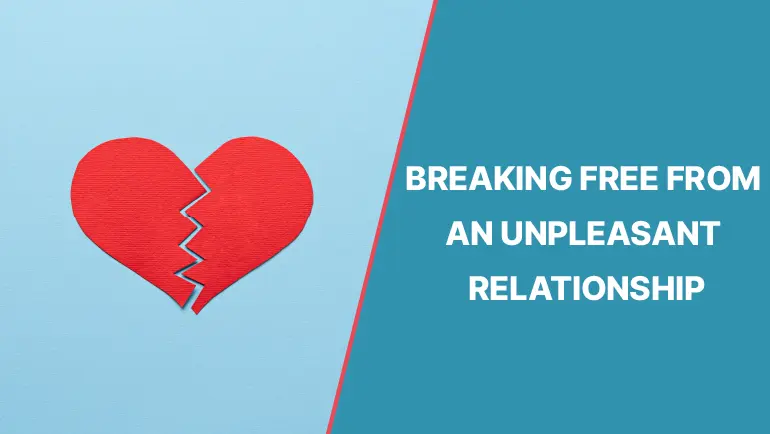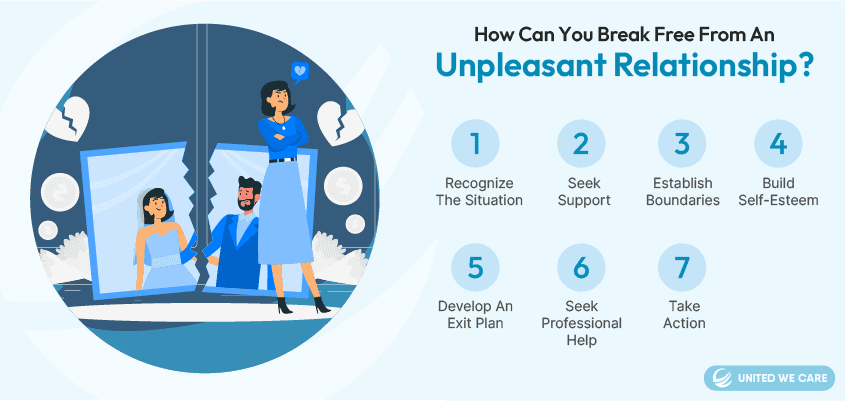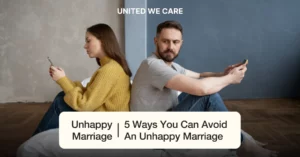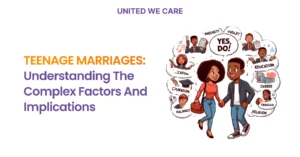Introduction
Have you started noticing any issues lately in your relationship? Do you constantly have negative thoughts when you think about your partner and your relationship? Does your try to control you?
When we enter a relationship, one of the primary goals is to feel happy in the relationship and not have any issues. However, a relationship can have its expiry date. It can sometimes lead to negative feelings, fights, and unhappiness with no visible path toward fixing things. In such a situation, it’s important to focus on your well-being and take steps that are necessary to regain control of your life and break free.
“Don’t settle for a relationship that won’t let you be yourself.” -Oprah Winfrey [1]
What Is An Unpleasant Relationship?
Remember when Kelly Clarkson sang, “Wanted to belong here, but something felt so wrong here. So, I prayed I could break away”? That’s what an unpleasant relationship can feel like.
When you start feeling unhappy in a relationship, and there is no way to fix things, know that you are in an ‘Unpleasant Relationship.’
The time that you start feeling unhappy in your relationship can be unknown to you for a long time. However, agreeing, even to yourself, that your relationship has become unpleasant can be tough.
Constant fights, growing emotional distance, lesser communication, feeling that you are irrelevant to the other, or just feeling in the pit of your stomach that something is wrong can be the possible signs of unpleasant feelings in your relationship [1].
Such a relationship can make you feel negatively even about yourself. You might start losing faith in yourself, the people around you, and even God. You may even develop some mental, emotional, or physical concerns, including anxiety and hypertension [2].
What Are The Indications Of An Unpleasant Relationship?
When a relationship starts turning unpleasant, there are certain warning signs you need to look out for [3]:
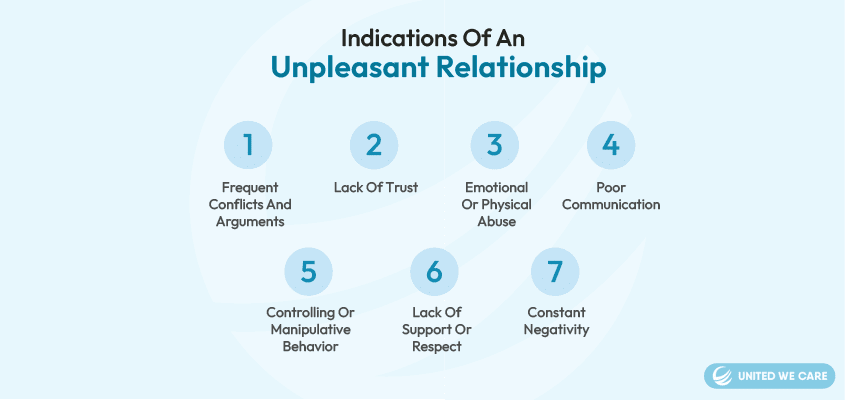
- Frequent Conflicts And Arguments: Do you constantly fight with your partner over minor issues? I remember a friend who started having fights with her husband, even over things like the placement of the glass on the dinner table. Such disagreements, heated arguments, and not wanting to solve the issues are possible red flags in the relationship.
- Lack Of Trust: Ask yourself whether you trust your partner 100% or not. Trust can never be 70% or 50%. It is either a 0 or a 100. If you often find yourself getting suspicious about your partner’s behavior and feel that he might be betraying you or cheating on you, then these feelings can create an unpleasant environment.
- Emotional Or Physical Abuse: Any form of abuse is a red flag in a relationship. Everyone deserves to feel safe and secure in a relationship. However, if you and your partner get into verbal, physical, or emotional abuse where either you hit each other or insult each other often, then take it as an indicator of an unpleasant and toxic relationship.
- Poor Communication: How often do you and your partner talk in the day where you can talk your heart out? If you face difficulty in expressing your thoughts and feelings to your partner, then that’s another red flag to look out for. Lack or poor communication can lead to misunderstandings and feelings of being unwanted.
- Controlling Or Manipulative Behavior: Do you choose where to go, with whom to go, and what to wear? Does your partner often tell you that nobody would want to be with you other than them? Then, your partner is engaging in controlling and manipulative behavior.
- Lack Of Support Or Respect: Do you feel supported and respected in your relationship? The couple and the relationship grow when there is mutual support and respect. If that is lacking in your relationship, it’s one more red flag you need to look out for.
- Constant Negativity: When you think about the foundation of your relationship, does it feel like it’s getting built on criticism and negativity? Such feelings can harm your emotional well-being drastically.
Why Do People Stay In Unpleasant Relationships Though They Are Unhappy?
I have come across many people who seem unhappy in their relationships, and sometimes they agree as well. Yet, they decide to stay in that unhappy and unpleasant relationship and refuse to leave. I’ve always questioned them why they choose to stay, and here’s what I found [4] [5]:
- They have invested too much in the relationship, time-wise and emotionally.
- They are scared of being alone.
- They are emotionally dependent on their partners and can’t seem to let go.
- They hope that things will change over a period of time.
- They feel that they, anyway, do not deserve love or better treatment.
- They are financially dependent on their partner.
- They have a child together, and leaving their partner can impact the child.
- They have some shared assets, and leaving would take away their rights.
I understand that getting out of your relationship is difficult, even if it makes you unhappy and bothers you deeply. However, staying will also not do too much. If something is past its repair, it’s best to let it go, even if it’s a relationship.
How Can You Break Free From An Unpleasant Relationship?
Breaking free from an unpleasant relationship can be challenging. Still, there are steps you can take [6]:
- Recognize The Situation: If you feel that you relate to any of the signs I mentioned, then the first step is to accept that the relationship has gotten sour and unhealthy. I know it would be hard, but you can’t shy away from the truth.
- Seek Support: Once you’ve accepted the situation, you might need help to understand what happened and how you can move forward. Probably, your friends and family members can help you out with it. Even if they don’t give you a solution, at least you can gain strength with their presence.
- Establish Boundaries: If your relationship has just started to become unpleasant, then there is still hope that things can get better. Understand and establish your boundaries- what is okay with you and what is not. Doing so can help you protect your sanity and well-being.
- Build Self-Esteem: You are worthy of everything beautiful in life. You just need to get in touch with yourself and remember who you are. Look within, go for meditation and breath control, and make healthier choices. Do something that you like doing for once.
- Develop an Exit Plan: If worse comes to worst, you can think of how to end things. Look into aspects like finances, housing, legal work, etc.
- Seek Professional Help: You don’t have to manage everything on your own. Take help from mental health professionals who know how to deal with such situations. United We Care is one such platform.
- Take Action: When you’re ready, move forward with the decision to end the relationship. It may not be easy and might involve further abuse and difficult discussions. But, keep calm, take the help of the police if needed, but keep your safety in mind.
Conclusion
Breaking free from a relationship is the last resort. However, if your relationship has come to that, then your safety and peace of mind are the most important. You might need a lot of help and support for the same. So feel free to get in touch with the people you trust. Remember that you can be your only priority in life and that you can and will always find your way, even if you are financially dependent on your partner. Just remember to choose yourself.
If you are going through an unpleasant relationship, consult expert counselors and explore content at United We Care! At United We Care, a team of professionals and mental health experts will guide you with the best methods for your well-being.
References
[1] J. Collins, “25 Best Quotes About Bad Relationships To Help You Move On – Semi-Delicate Balance,” Semi-Delicate Balance, Sep. 03, 2020. https://www.semidelicatebalance.com/quotes-about-bad-relationships/#:~:text=%E2%80%9CYou%20cannot%20thrive%20in%20toxic,away%20from%20having%2030%20cats.%E2%80%9D
[2] Sabini, J. and Silver, M., What is so bad aboutlonelinessy?, vol. 563–576. New York, NY, USA: Oxford University Press, 2005.
[3] “The Seven Principles for Making Marriage Work – Wikipedia,” The Seven Principles for Making Marriage Work – Wikipedia, Mar. 18, 2021. https://en.wikipedia.org/wiki/The_Seven_Principles_for_Making_Marriage_Work#:~:text=These%20principles%20include%3A%20enhancing%20their,a%20shared%20sense%20of%20meaning.
[4] F. D. Fincham and S. R. H. Beach, “Marriage in the New Millennium: A Decade in Review,” Journal of Marriage and Family, vol. 72, no. 3, pp. 630–649, Jun. 2010, di: 10.1111/j.1741-3737.2010.00722.x.
[5] S. Sprecher and D. Felmlee, “The Influence of Parents and Friends on the Quality and Stability of Romantic Relationships: A Three-Wave Longitudinal Investigation,” Journal of Marriage and the Family, vol. 54, no. 4, p. 888, Nov. 1992, doi: 10.2307/353170.
[6] P. Hilpert, G. Bodenmann, F. W. Nussbeck, and T. N. Bradbury, “Predicting relationship satisfaction in distressed and non-distressed couples based on a stratified sample: a matter of conflict, positivity, or support?,” Family Science, vol. 4, no. 1, pp. 110–120, Oct. 2013, doi: 10.1080/19424620.2013.830633.
[7] S. Fergus and M. A. Zimmerman, “ADOLESCENT RESILIENCE: A Framework for Understanding Healthy Development in the Face of Risk,” Annual Review of Public Health, vol. 26, no. 1, pp. 399–419, Apr. 2005, doi: 10.114annualev.publhealth.26.021304.144357.

